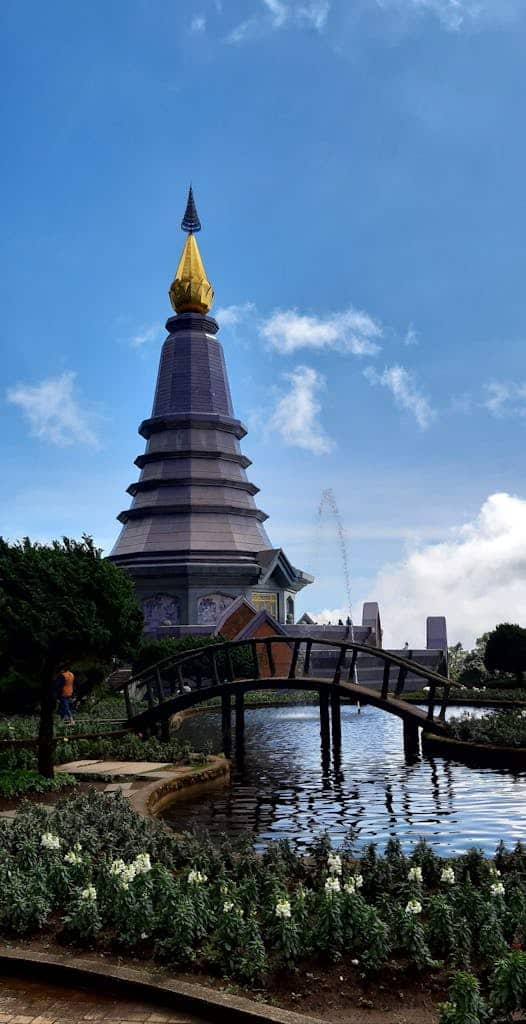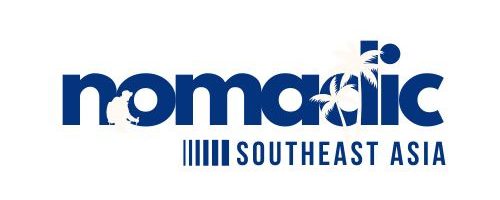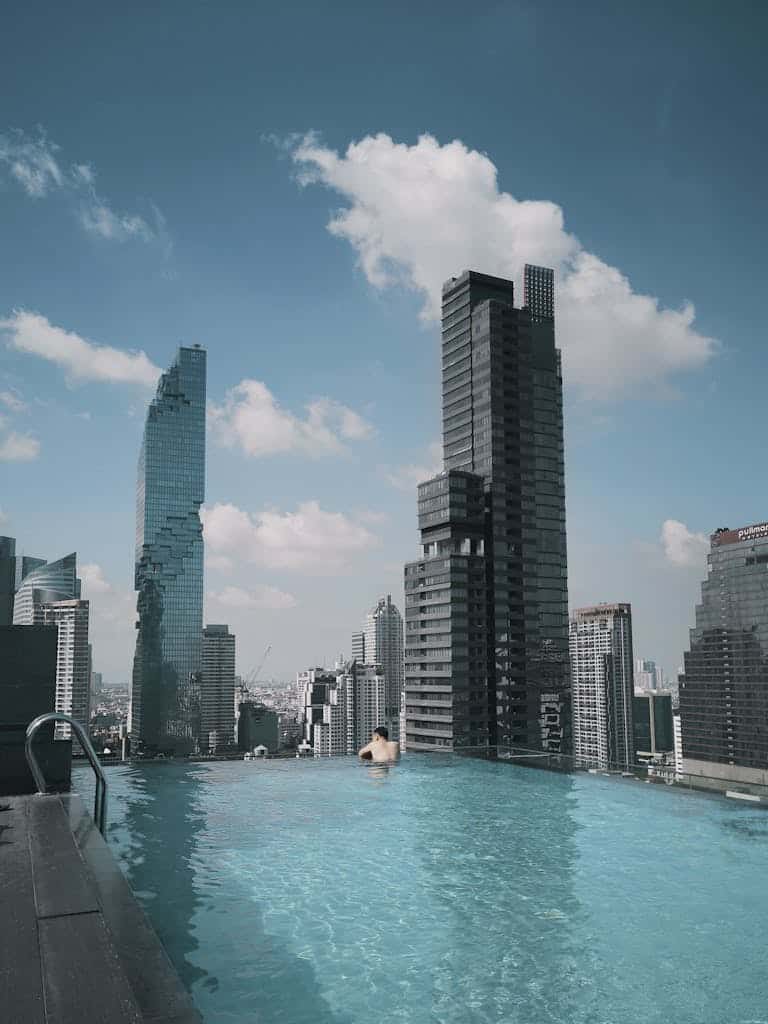Best Time To Visit Thailand: Ultimate 2025 Guide

Thailand! A country of beauty, where old temples stand next to colorful markets, and the most talked about serene beaches converge with crazy city streets.
Whether you’re avoiding water fights during Songkran or sitting in silence in a monastery that’s centuries old, every moment here is an adventure.
You may have heard this before: Thailand isn’t just a place to visit, it’s an experience.
And like any great experience, your timing and planning will make this unforgettable trip.
Officially its the Kingdom of Thailand, which is part of the 11 fascinating countries of the Southeast Asia region.
That’s why we’ve put together the Best Time To Visit Thailand: Ultimate 2025 Guide which is packed with insider tips, festival calendars, budget guides, and itinerary suggestions to help you plan the ultimate adventure.
Lets dive in..
Key Takeaways
✅ Best Time to Visit Thailand: November to February is cooler, drier weather—ideal for sightseeing cities and beaches.
✅ Must-Visit Festivals: Songkran (Thai New Year) in April and Loy Krathong in November are experiences not to be forgotten.
✅ Best Places: Bangkok’s Grand Palace, temples in Chiang Mai, and beaches in Phuket must feature on every traveler’s list.
✅ Budget Travel Tips: Street food, local transportation (such as tuk-tuks and trains), and cheap guesthouses keep expenditures minimal.
✅ Digital Nomad Friendly: With coworking spaces and good Wi-Fi, Thailand is ideal for remote workers.
✅ Ready to Turn Travel into a Lifestyle? Focused: Discover Southeast Asia has tips on living abroad and building a successful travel blog.
Learn About The Climate & Best Time to Visit Thailand (2025 Guide)
Thailand’s climate and festivals create a unique travel experience all year round.
Whether you’re chasing sunny beaches or cool mountain air, its important to brush up on the timing of your visit can make all the difference.
In 2025, aside from the classic tropical heat, there’s enough variety to suit every interest.
In the coastal and central regions of Thailand, expect hot and humid conditions between March and June, whereas the north, especially cities such as Chiang Mai, enjoys cooler nights between November and February.
One of the year’s major highlights is Songkran 2025.
The water festival marks the Thai New Year through crazy street celebrations, family ceremonies, and local traditions.
You’ll quickly I learn the hard way that Songkran (April) turns Bangkok into a water battlefield! 💦 🔫
Nomadic Tip: Highly recommend carrying a “waterproof” bag and/or zip lock bags fro electronics.
Below is how to make the most out of it:
- Travel a few days prior to the festival to participate in community festivities.
- Carry a waterproof bag for your belongings.
- Dress according to the season and gear up for water fights in the streets.
For, if you would rather avoid the party, there are always other historical attractions and nature parks you can explore during less crowded months.
Weather Region Breakdown (micro-climate tips)
Planning around the seasons ensures a smoother trip. Here’s a quick breakdown:
Bangkok & Central Plains
- November-February (Best Time): 28°C, low humidity. Perfect for temple-hopping.
- March-May (Hot Season): Blistering 38°C heat. Tip: Book pool hotels.
- June-October (Rainy Season): Short showers, but cheaper hotels. Avoid September floods.
Northern Thailand (Chiang Mai, Pai)
- Cool Season (Nov-Feb): Foggy mornings at 15°C. Pack a light jacket.
- Burning Season (Mar-Apr): Hazardous smoke from farm burning.
Nomadic Tip: Many digital nomads flee to beaches during this season.
Southern Islands
- Andaman Coast (Phuket, Krabi): Ideal Nov-Apr
- Gulf Coast (Koh Samui): Ideal Jan-Aug
Monsoon Reality Check: For example, in Koh Tao’s ferries stopped running for 3 days in 2023 because of storms. Always be adaptable with your schedule.
Visa Requirements and Mandatory Travel Documents for Thailand

Having fixed the local weather and optimal times of your stay in Thailand, the second crucial step in your planning for travel is understanding the visa requirements.
Do this in advance to steer clear of any last-minute complications.
Follow these rules for a trouble-free visa application process:
Official Validation:
Confirm the current visa regulations and extra conditions for the nationals of your home country on the website of the Royal Thai Embassy/Consulate in your country or the Thai Ministry of Foreign Affairs.
- Key: Visa Exemption Traveler Considerations
- Passport Validity: As mentioned, a passport valid for at least six months beyond arrival is needed.
- Onward Travel:
- Be prepared to present proof of onward or return travel arrangements (e.g., plane or bus tickets) within the duration of your approved stay.
- Adequate Funds:
- Although not always strictly required, immigration officials sometimes ask for evidence of adequate funds to maintain your stay.
- A general guideline is to carry about 10,000 THB (about $295 USD) for an individual or 20,000 THB (about $590 USD) for a group.
Digital Arrival Card (TDAC):
- Compulsory Online Registration:
- Beginning from May 1, 2025, all foreign travelers to Thailand, regardless of visa status, will be required to complete the online Thailand Digital Arrival Card (TDAC) at least three days before traveling.
- Goodbye TM6:
- The electronic version replaces the paper TM6 arrival card. Complete it on the official Thailand Immigration Bureau website.
Extending Your Stay Under Visa Exemption:
- One-Time Extension: You can extend your stay by 30 days if you are eligible for visa exemption.
- This is to be done at the local immigration office. It can be done once a time.
- Extension Fee: The extension fee is 1,900 THB ($55 USD approx.).
- Apply Before Expiry: Extensions are discretionary with the immigration officer, so apply before your original allowed stay expires (i.e., before the end of your initial 60-day period).
Repeated Visits to Thailand
- Multiple-Entry Tourist Visa (METV):
- For people who plan to make several trips to Thailand in six months, METV can be used.
- Yes, it allows multiple entries with 60 days stay for each entry.
- This visa, however, is to be obtained before departing from a Thai Embassy or Consulate in the home country, and its extension is not generally permitted.
- Destination Thailand Visa (DTV):
- The DTV, initiated in 2024, is a multiple-entry visa that is best suited for long-stay or repeated visits.
- It permits a stay of up to 180 days per entry, with the potential for one entry to be extended by a further 180 days.
- You will need to meet some financial requirements (you will need at least 500,000 THB in your account) and pay an application fee to qualify.
- This visa is best suited for digital nomads and those highly immersed in Thai culture.
Electronic Travel Authorization (ETA):
- Future Implementation:
- Take note of the future Electronic Travel Authorization (ETA) scheme, which will be fully implemented by June 2025.
- Pre-Registration for Visa-Free Nationals:
- Under the plan, tourists from visa-free countries now will be required to pre-register online before they can enter Thailand.
- Details to Follow:
- The complete details of the ETA system have not been fully announced, though the idea is to streamline the arrival process and enhance security.
- The first phase is hoped to be free.
Applying for a Pre-Arrival Tourist Visa:
If you are not from a visa-free country, or staying longer than the permitted stay, you should obtain a Tourist Visa before departure. Most typical ones are:
- Single-Entry Tourist Visa (SETV):
- Has an utmost stay of 60 days and is often extendable by another 30 days within Thailand.
- Multiple-Entry Tourist Visa (METV):
- As above explained, validity for six months with each entry allowing a maximum stay of 60 days.
Both SETV and METV applications can now be easily applied online via the Thailand E-Visa portal, which started operations worldwide on January 1, 2025.
Online application process easy without having to personally visit embassies or consulates.
Detailed City & Island Itineraries in Thailand

Bangkok: The Urban Heart of Thailand
Bangkok is a must-visit on any Thailand itinerary, you’ll get to experience modern with the traditional.
Start your journey with a visit to iconic landmarks like the Grand Palace. While exploring, try to keep these quick tips in mind:
- Begin your day early to avoid crowds
- Grab simple street food for an authentic culinary experience
- Wear comfortable footwear since you will walk quite a lot
In addition to these iconic places, the city boasts active floating markets and these markets are not just shopping spots, you get a peek at local life and tradition.
Since I’ve delved in to Muay Thai, while your exploring, don’t forget to visit Muay Thai fights that capture the spirit of Thailand’s martial arts culture.
Such thrilling matches are typically organized at local stadiums and pubs and provide an adrenaline-pumping environment.
Chiang Mai: Where Culture and Nature Unite

Chiang Mai offers a more casual and chill vibe than the mayhem of Bangkok, but it is teeming with nature and culture.
The old city has ancient temples, local markets, and serene places perfect for quiet reflection and creative pursuits.
Top must-see spots in Chiang Mai include:
- Wat Phra That Doi Suthep, a temple providing panoramic views of the city.
- Evening bazaars where you can sample northern Thai food and purchase handicrafts.
- Residential neighborhoods where there are authentic Lanna festivities and craftsman workshops.
For those who prefer to mix historical exploration with adventure, take on a day trip with an add-on visit to elephant sanctuaries or trekking routes.
Chiang Mai is also a digital nomad haven; with numerous cafes and co-working offices, you can easily work and travel.
Chiang Mai – Digital Nomad Edition
Coworking Spaces Ranked:
- Punspace (Tha Phae Gate) – Best for networking
- CAMP (Maya Mall) – 24/7 access
- Alt_Chiang Mai – Quiet and plant-filled
Phuket: Island Adventures for All Travelers
Phuket, Thailand’s largest island, offers a complete range of experiences, from luxury indulgence to low-cost travel and digital nomad facilities.
On the west coast, the luxury traveler has private villa resorts and oceanfronts to die for around Kamala and Surin Beach.
Indulge in first-class spas, gourmet restaurants, and private boat tours to nearby islands like Phi Phi.
For some splurge, accommodate at one of the upscale Trisara or Rosewood Phuket resorts.
For a shoestring, find inexpensive guesthouses and hostels in Phuket Town or Patong.
Indulge in delicious and cheap street food, and commute about to the gorgeous beaches on public transport like hired motorbikes or songthaews.
Shopping and foodies’ treats aren’t to be missed in the night markets.
Digital nomads flock to places like Rawai and Chalong, where increasingly there is a range of coworking spaces like Garage Society and BAYACO, as well as decent cafes with Wi-Fi.
The low cost of living compared to much of the Western world, along with rich social life and stunning beaches, makes Phuket an excellent base for remote work.
Krabi: Limestone Cliffs and Coastal Charms
Krabi, with its imposing limestone karsts rising from the blue Andaman Sea, provides an alternative but equally magical Thai experience.
High-end tourists can discover secluded resorts on Railay Beach or in quieter areas of Ao Nang, with secluded beaches, scenic vistas, and high-end facilities.
Go on private longtail boat tours to explore the breathtaking islands, indulge in spa treatments, and delight in delectable seafood.
For the luxurious treatment, choose a pool villa.
Budget travelers will find that Krabi Town and parts of Ao Nang offer low-cost accommodation and dining.
Go to the markets, take cheap longtail boats to Railay beaches, and enjoy free sports like swimming and sunbathing.
Motorbike rental offers freedom to explore the mainland attractions like the Emerald Pool and hot springs.
Digital nomads are irresistibly attracted in larger numbers by Krabi’s laid-back culture and stunning looks.
While there are fewer than in Chiang Mai or Phuket, there are decent cafes with a consistent Wi-Fi as well as a substantial group of remote workers already established.
Outdoor activities like rock climbing, kayaking, and island-hopping are prevalent while reducing the living cost.
The lifestyle is thus extremely suitable to the ultimate work-life balance.
Pai: Bohemian Vibes and Mountain Serenity
Hidden in a valley of green mountains in Northern Thailand, Pai has a unique, bohemian character that attracts a diverse group of travelers.
Upscale tourists can opt for boutique resorts like Reverie Siam.
This is where European style is blended with traditional Thai hospitality to offer serene retreats amidst stunning natural surroundings.
Treat yourself to spa therapies, fine dining, and impeccable service in a serene atmosphere.
Not as abundant as on the islands, luxury lies in the unique character and peaceful ambiance of Pai’s high-end accommodations.
Budget travelers fare well in Pai’s relaxed vibe, with a number of low-cost guesthouses and hostels, especially along the walking street.
There’s lots of tasty, very cheap street food, and it’s easy to explore the town and surrounding natural attractions like waterfalls and hot springs on a very low budget by scooter rental.
Pai is also popular with digital nomads who are looking for a slower pace of life and a more creative atmosphere.
While there might be few proper coworking spaces (All About Coffee is notable), there are quite a few cafes with decent Wi-Fi and a nice vibe to work remotely.
The cost of living is far less than in the major cities or islands, and so it’s a great option for those for whom budget and relaxed lifestyle are a priority.
The scenic natural environment and a tight-knit community are bonus points of Pai.
Top Yoga Retreats in Pai:

Pai has become a popular destination for yoga. meditation and wellness retreats, offering a tranquil setting amidst nature.
Some highly-rated yoga retreats in Pai include:
- 15 Day Qigong, Meditation, and Internal Kung Fu Training: Offers a holistic approach to well-being through movement and mindfulness practices.
- 8 Days Qigong, Meditation, and Internal Kung Fu Training: A shorter version of the above retreat, focusing on core principles.
- 5 Day Qigong, Meditation, and Internal Kung Fu Training: An introductory program for those new to these practices.
- 7 Day Meditation Retreat in Thailand: Focuses specifically on deepening meditation practices in a serene environment.
- Various retreats combining yoga and meditation: Many other smaller, independent retreats offer yoga classes and workshops, often integrated with other wellness activities like sound healing or nature excursions
Travel Calendar 2025 and Event Planning
Travel Calendar 2025 is a treasure trove of details in planning your itinerary.
It highlights major events, national holidays, and celebrations in the area throughout Thailand.
Refer to the calendar to:
- Set travel dates with major events or cultural holidays.
- Skip travel dates that would result in overcrowding or unusually high accommodation prices.
- Arrange standbys when the main event program clashes with your timing.
Using Internet devices like Google Calendar makes it simple to follow and remind.
Scheduling your travel with your calendar informs you about changes in your schedule and events in your area.
Balancing Work and Travel in Thailand
Thailand is the best mix of productivity connectivity and nature for most digital nomads.
Depending on your preference to work either from a city coffee shop or beach resort, your scheduling flexibility is best suited to you.
The following is how to combine work and exploration:
- Research all the coworking places in major cities like Bangkok and Chiang Mai
- Schedule your mornings for blocks of deep work and reserve afternoons for exploration
- Use local SIM cards or portable Wi-Fi devices to ensure connectivity
Insider Local Tips and Anecdotes
Interacting with a welcoming street vendor in Bangkok or learning about traditional Thai cuisine in Chiang Mai are just a few examples of experiences that can greatly define your journey.
Take these tips to further your connection with the local culture
- Carry Small Denominations:
- Keeping loose change on hand will make transactions convenient for local spending and small vendors.
- Learn Basic Thai Phrases:
- Even a humble effort at speaking Thai will be graciously appreciated and add immensely to your experience with the locals.
- Enjoy Street Food:
- Tasting local street food is usually safe and provides an authentic and delectable food experience.
Tips provided on nomadic travel sites usually stress that among the most cherished memories are those made possible by unplanned side-trips and the locals’ generosity.
Indulge in such a spontaneity, as it can go a long way in making a highly personal and satisfying Thai experience in 2025.
Although planning is required for any trip, flexibility in your plans allows you to make the most of unexpected opportunities.
If, for instance, a particular street vendor is not available, trust that there is a similarly attractive option likely just around the corner.
Regardless of your interest in the vibrant city life of Bangkok, the serene ancient places of Chiang Mai, or the luxury beach resorts, all parts of Thailand can contribute to making your personal life better.
As you plan every step of your traveling planning process, from reservation on flights to searching for travel advice, it all contributes towards a deeper insight into your destination.
Use authoritative sources such as Lonely Planet for an in-depth local insight and websites like Booking.com to search for accommodations suitable for you.
Forming connections with fellow travelers through social media networks and online forums will provide valuable up-to-the-minute news about special events and activities.
Finally: Travel Insurance, Health, Safety & Packing Tips
Why Travel Insurance is Crucial for Your Adventures
Skipping travel insurance is a risky gamble. As my friend learned firsthand with a costly hospital bill after a scooter accident in Bali, unexpected events can happen.
Travel insurance would have covered it, but neglecting to purchase it beforehand proved to be an expensive lesson.
Here are three key considerations when choosing your travel insurance:
- Emergency Evacuation: Ensure your policy includes medical evacuation. Airlifting from a remote location can easily exceed $50,000.
- Adventure Sports: If your itinerary involves activities like surfing in the Philippines or diving in Thailand, confirm your coverage extends to these.
- Direct Billing: Opt for plans that allow hospitals to bill the insurance company directly, saving you from upfront out-of-pocket expenses.
Several popular and traveler-friendly providers offer affordable and easily manageable online policies, including SafetyWing, World Nomads, and Allianz.
Think of travel insurance as your seatbelt – you don’t plan for an accident, but you’ll be thankful for it if one occurs.
Preparation is key to staying healthy and enjoying your travels, especially as a digital nomad in Southeast Asia.
With the right insurance, a bit of research, and a flexible mindset, you can focus less on potential problems and more on experiencing the incredible journey.
Health Essentials
- Vaccines: Hepatitis A, Typhoid (CDC recommended)
- OTC Meds to Pack: Loperamide (trust me), rehydration salts
- Hospitals: Bumrungrad (Bangkok) is world-class
Scam Alert: Fake “Tuk-tuk to Grand Palace” drivers take you to gem shops instead. Always use Grab app.
Packing List
Do Bring:
- Quick-dry towel (hostels rarely provide)
- VPN (to access Netflix/work emails)
- Portable safe (for beach days)
Leave Behind:
- Jeans (too hot)
- Expensive jewelry (draws unwanted attention)
Travel Insurance
- High Medical Coverage: Provide adequate coverage for potential medical emergencies and hospitalization.
- Activity Coverage: Make sure your planned activities (e.g., diving, motorbike use) are covered.
- Trip & Belongings Protection: Make sure that cancellations, delays, and lost/stolen are covered.
Final Thoughts: Finding the Authentic Thailand Beyond the Tourist Track
So you’ve got the best idea of the best times to travel and how to plan your visa – excellent!
Now, let’s talk about what truly makes Thailand unique, the things you don’t always see on a postcard.
You see, Thailand has this fabulous ability to surprise you when you go a bit off the most trodden tourist tracks.
It’s the spontaneous moments that become most of the cherished memories.
Think about it: that friendly fisherman in Koh Lanta who happens to invite you to sit with him at his daughter’s wedding, or the kind monk at Wat Arun who laughs at you when your proper greeting goes slightly wrong.
These are the real connections that add a whole new dimension to your holiday experience.
For all Digital Nomads everywhere: Thailand is still such a great choice for building your remote office.
You can easily spot hip coworking cafes popping up in every nook, making it really easy to get work done and discover simultaneously.
And let’s not forget that the living here is really affordable, so you have more baht to splurge on those delicious mango sticky rices!
Luxury Travelers, Gather ‘Round: Get ready to splurge without breaking the bank!
In earnest, where else can you spend a fortune on a divine 90-minute massage for twenty dollars and follow it up with some fantastic rooftop sushi?
Thailand offers a taste of the good life that won’t break your budget.
And for Adventure Seekers and Backpackers: Thailand is seriously a legendary launching pad for phenomenal adventures.
You never know what super experiences and networks are around that next corner waiting for you to stumble upon it.
So, as you plan your schedule and tick off those must-haves, don’t forget to leave a little room for spontaneity.
Ride with the unexpected meetings, go off the grid, and you’ll discover a Thailand that’s even more captivating and rewarding than you ever could have imagined
Frequently Asked Questions (FAQs)
What are the best months for good weather in Thailand in 2025?
In general, the best months to visit Thailand for good weather are from November to March. These months are drier and cooler, and therefore suitable for sightseeing and outdoor activities in most of Thailand.
What is the cheapest way to travel to Thailand in 2025?
The rainy season, from May to October, usually offers the lowest airfare and hotel prices since there are fewer tourists. While it does rain, it comes in short intervals, and the landscape is lush and green.
What are there peak times to visit Thailand to view some festivals in 2025?
Yes! Some of the bigger festivals in 2025 are:
– Songkran (Thai New Year): Typically April 13th-15th, notoriously famous for massive water fights.
– Loy Krathong: Typically November (based on the lunar calendar), a beautiful festival in which floating candles are launched.
– Watch out for the Vegetarian Festival (likely October) primarily celebrated in Phuket.
What are the few easy steps to open my own Southeast Asia travel blog?
Building your travel blog is all about the love of storytelling – record your adventures, give tips and don’t be afraid to get real in your posts. Select a simple website builder, write conversationally and don’t forget the photographs. Sites such as WordPress or WPX.net enable you to set up easily, and studying successful sites such as Nomadic Southeast Asia can give you a no-nonsense plan.
How do I avoid crowds, When is shoulder season in Thailand in 2025?
Shoulder season in April or October can offer a good mix of favorable weather and smaller crowds than in high season (Nov-Mar). Here too, flight and hotel deals can be discovered.
How do I make money from my passion while traveling Southeast Asia or any where in the world?
This is where our experience takes center stage – Focused: Discover Southeast Asia and become a pro at monetizing your interest! Start by creating good content that not only entertains but also educates readers, like earning money through affiliate links, sponsored posts, or even online courses. Experiment with methods without dreading evolving over time. Many bloggers share their journey step by step on sites like Nomadic Southeast Asia to help you develop your own thriving business.



